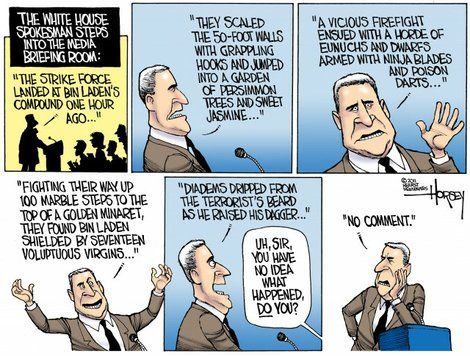 Meet the new “Death Sentence Czar” appointed by President Barack Obama to choose who will be targeted for assassination by unmanned drone without due process
Meet the new “Death Sentence Czar” appointed by President Barack Obama to choose who will be targeted for assassination by unmanned drone without due process
WASHINGTON-White House counter-terror chief John Brennan has seized the lead in choosing which terrorists will be targeted for drone attacks or raids, establishing a new procedure for both military and CIA targets.
The effort concentrates power over the use of lethal U.S. force outside war zones within one small team at the White House.
The process, which is about a month old, means Brennan’s staff consults with the State Department and other agencies as to who should go on the target list, making the Pentagon’s role less relevant, according to two current and three former U.S. officials aware of the evolution in how the government goes after terrorists.
John Brennan,a top CIA aide to George Tenet during the Bush Administration, was President Obama’s choice for CIA Director. He voluntarily withdrew his name because of the controversy over his support of the Bush policies of the torture of terrorist detainees and the governments extraordinary rendition program. Instead the president appointed Brennan as his counter-terrorism chief and now has put him in charge of killing accused terrorists around the world.
Glenn Greenwald reports that Brennan has been caught lying on a number of occasions about the circumstances surrounding some high profile cases.
{..}including falsely telling the world that Osama bin Laden “engaged in a firefight” with U.S. forces entering his house and “used his wife as a human shield,” and then outright lying when he claimed about the prior year of drone attacks in Pakistan: “there hasn’t been a single collateral death.” Given his history, it is unsurprising that Brennan has been at the heart of many of the administration’s most radical acts, including claiming the power to target American citizens for assassination-by-CIA without due process and the more general policy of secretly targeting people for death by drone.
Brennan will be the sole arbiter of who to recommend to President Obama to target for assassination. No evidence presented in court, no judge, no jury, no chance for the victim to defend himself and in total secrecy It has now become extremely easy to have someone killed, all this under the guise of “Change” with the blessing of the winner of the Nobel Peace Prize.
What is even more disconcerting is the loyalists to this President who defend or conveniently ignore all of the things they decried just a short 4 years ago: Torture, the Patriot Act, warrant-less eavesdropping, rendition, Guantanamo, indefinite detention. All of this is now acceptable under this president. Dick Cheney must be so proud.
N.B. Greenwald provides links to two amazing exchanges by Charles Davis that demonstrate the twisted logic used by Obama fanatics to either justify or ignore Obama’s policies.


Recent Comments